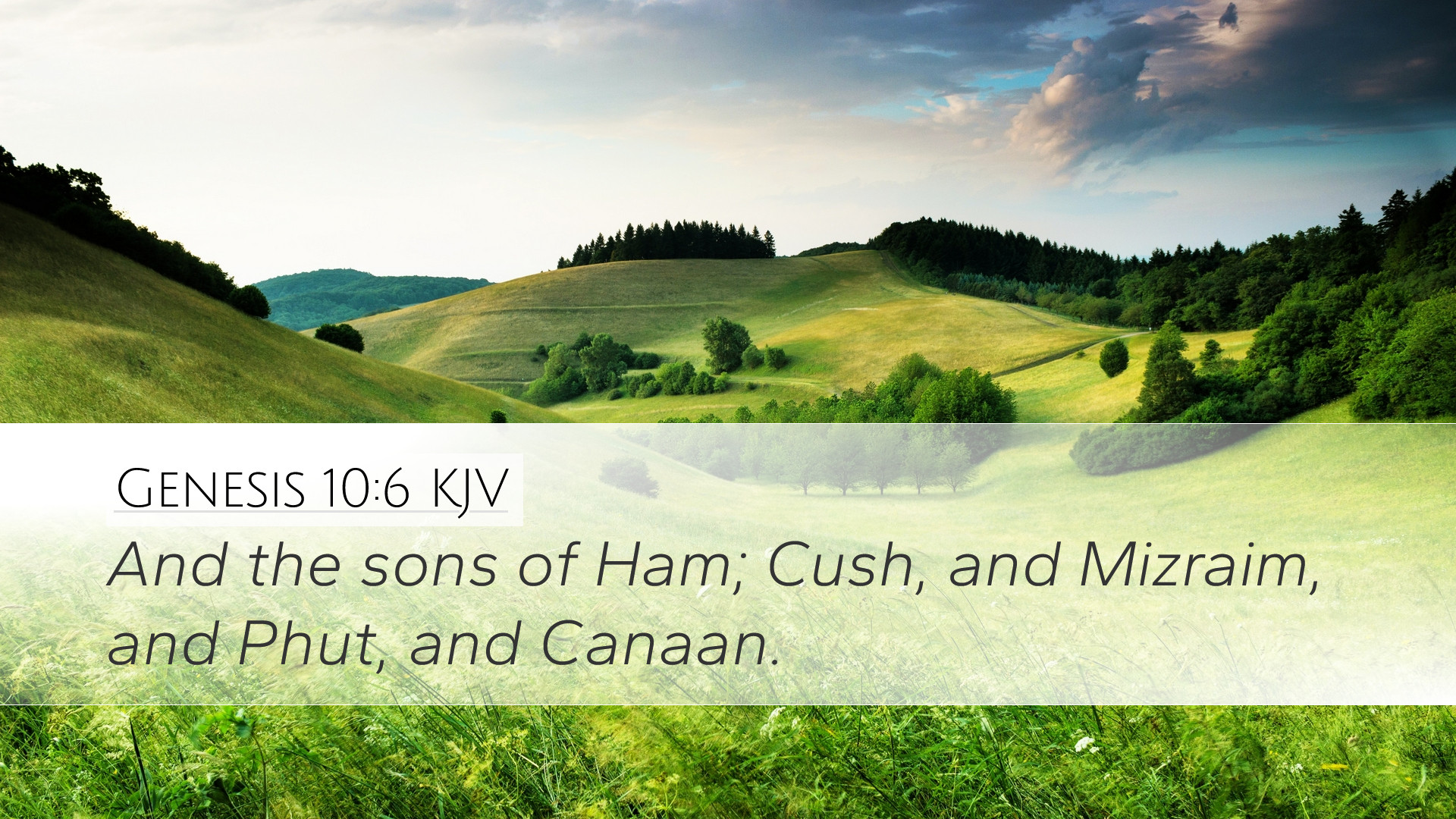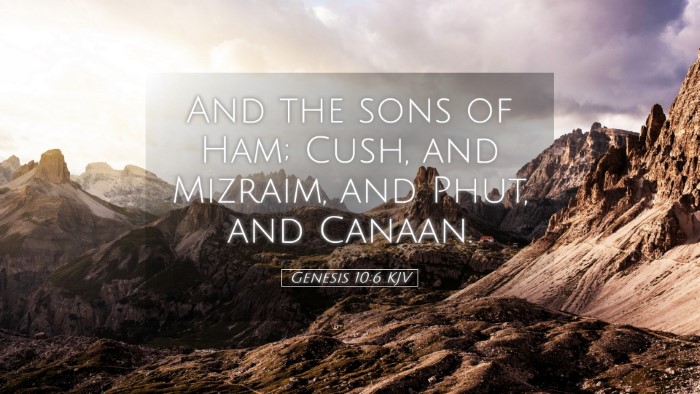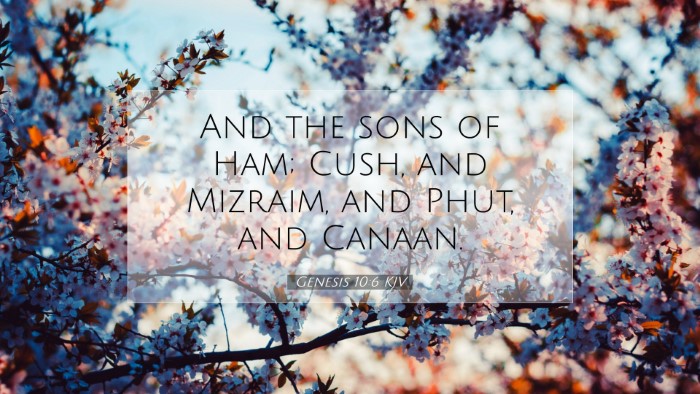Commentary on Genesis 10:6
Genesis 10:6 states: "And the sons of Ham; Cush, and Mizraim, and Phut, and Canaan." This verse is part of the genealogical records in Genesis 10, often referred to as the Table of Nations. This chapter details the descendants of Noah's sons: Shem, Ham, and Japheth, and illustrates the origins of various nations.
Overview of Ham’s Lineage
This verse specifically introduces the line of Ham, one of Noah's three sons. The descendants listed reveal significant historical and geographical influence, which is essential for understanding subsequent biblical narratives.
The Significance of Ham's Lineage
- Cush: Generally identified with the region of Nubia and the modern Sudan, Cush was known for its strong military prowess and wealth.
- Mizraim: Traditionally associated with Egypt, Mizraim represents one of the earliest and most notable civilizations mentioned in the Bible. The historical and cultural implications of Egypt in biblical accounts are far-reaching.
- Phut: Often identified with regions in North Africa, possibly including parts of Libya, Phut's descendants are noted for being skilled archers as per later biblical references.
- Canaan: This is a pivotal name in the biblical narrative, as the land known as Canaan later becomes the Promised Land for the Israelites. The descendants of Canaan would play significant roles in the conflicts depicted throughout the Old Testament.
Insights from Commentaries
Matthew Henry’s Commentary
Matthew Henry notes the importance of understanding the genealogies as it sets the stage for God's sovereignty and providence in human history. He emphasizes that these names not only represent people but nations that would later interact with Israel. Henry also stresses the moral implications behind these genealogies, indicating a deeper narrative about obedience and disobedience to God.
Albert Barnes’ Commentary
Albert Barnes elaborates on each descendant, providing a historical context that helps understand their significance at the time of writing. He highlights that the mention of these nations reflects the geographical spread and diversification of human cultures after the flood. Barnes emphasizes the importance of these genealogies in establishing God's covenantal faithfulness as He plans to work through the line of Shem, while the line of Ham reflects the broader narrative of human rebellion against God's order.
Adam Clarke’s Commentary
Adam Clarke further discusses the etymology and historical references of each name mentioned. He delves into the implications of their development as nations characterized by certain traits and behaviors. Clarke presents Cush as a land known for both its wealth and its complicated relationship with Israel, as well as Mizraim's great civilization which played a pivotal role in the biblical history of Israel, particularly during the Exodus.
Theological Reflections
The genealogical records in Genesis serve as more than mere historical data; they present an intricate tapestry of God’s plan for humanity. The line of Ham reveals that God’s redemptive work encompasses all nations while simultaneously articulating His particular covenant with Israel through the line of Shem. This collection of names illustrates both the unity and diversity of human experiences post-creation.
Implications for the Church
For pastors and theologians, the genealogies present valuable insights into the character and nature of God. It highlights God's plan and intentionality in creation and history and offers a robust understanding of genealogical importance in the biblical narrative. Furthermore, studying these passages encourages reflection on our own roots and how history shapes our identity and role in God’s unfolding purpose.
Conclusion
Genesis 10:6 encapsulates a movement of nations, heritage, and Divine intention. The descendants of Ham represent a rich study into the nature of humanity as reflected in Scripture. For students and scholars, it is an opportunity to contemplate the relationship between historical context and theological significance, thereby enriching their understanding of Biblical tradition and narrative.


